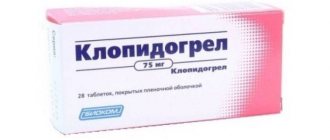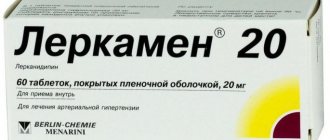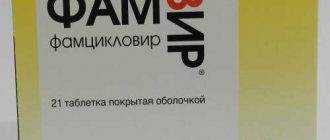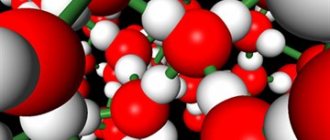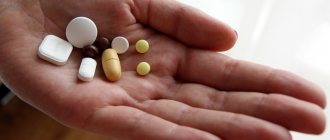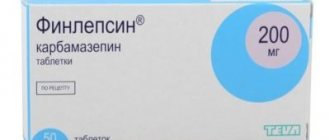The risk of sudden development of cardiovascular diseases is present in a person regardless of his age. Moreover, among those who have crossed the forty-year mark, heart and vascular diseases are observed almost without exception, and ignoring this problem often ends in death.
If you are prone to such diseases and simply for preventive purposes, it is necessary to undergo regular examinations and support the body with restorative drugs. Patients are often prescribed cardiomagnyl, which is a measure for the prevention of cardiac and vascular pathologies. However, any medicine has its advantages and disadvantages, expressed in limited consumption and side effects on the body. When cardiomagnyl will be beneficial, and when you should not drink it, are the main questions that we will consider today.
Pharmacodynamics and pharmacokinetics
Wikipedia states that acetylsalicylic acid is a salicylic ester of acetic (ethanoic) acid and has the ability to relieve pain, relieve fever and inflammation, and also prevent platelet .
Acetylsalicylic acid (ASA) irreversibly inhibits the COX-1 enzyme, as a result of which the important mediator of platelet TXA-2 is blocked and platelet .
It is generally accepted that ASA can suppress platelet in other ways, so it can be used in a fairly wide range of vascular diseases .
Magnesium hydroxide contained in tablets protects the mucous membrane of the digestive canal from the aggressive action of ASA.
ASA is absorbed from the gastrointestinal tract almost completely. T1/2 of the substance - about 15 minutes. This rate of elimination is due to the fact that acetylsalicylic acid is quickly hydrolyzed into salicylic acid (SA) in the blood plasma, liver and intestines.
For salicylic acid, T1/2 is approximately 3 hours. When enzyme systems are saturated, which is observed with simultaneous administration of ASA in a dose exceeding 3 g, the indicator can increase significantly.
Bioavailability of ASA is about 70%. The indicator is variable due to the fact that the substance undergoes presystemic hydrolysis under the influence of enzymes. The bioavailability of SA ranges from 80 to 100%.
The doses of magnesium hydroxide used do not affect the bioavailability of ASA.
Indications for use of Cardiomagnyl
The method of administration and dose depend on the indications for use of the drug.
Cardiomagnyl tablets - what are they for?
Indications for use of Cardiomagnyl:
- acute ( myocardial infarction (MI), unstable angina ) or chronic ischemic heart disease ;
- primary prevention of cardiovascular diseases in patients at risk (those suffering from obesity, diabetes mellitus , arterial hypertension , hypercholesterolemia , as well as those with a family history of myocardial infarction under the age of 55 years);
- primary prevention of acute venous thrombosis and prevention of recurrent thrombus (secondary prevention of thrombus formation).
What is the medicine Cardiomagnyl Forte for?
Forte tablets are indicated for ischemic heart disease (acute or chronic).
Contraindications for Cardiomagnyl
The annotation lists the following contraindications for the drug:
- hypersensitivity to ASA and other salicylates;
- intolerance to any of the auxiliary components of the tablets;
- aggravated peptic ulcer ;
- bleeding tendency ( hemophilia , thrombocytopenia vitamin K deficiency );
- severe dysfunction (with GFR below 10 ml per minute) or kidney failure;
- severe cardiac decompensation;
- history of angioedema or bronchial asthma provoked by the use of NSAIDs/salicylates
- childhood;
- last trimester of pregnancy;
- simultaneous use of methotrexate at a dose exceeding 15 mg/week.
Side effects
Most often (in approximately every 10th patient) the following were recorded during the use of Cardiomagnyl: decreased platelet , increased bleeding, reflux and heartburn .
The category of frequent (recorded with a frequency of 0.01 to 0.1) side effects includes: insomnia, headache, bronchospasm (in patients with bronchial asthma ), erosive lesions of the upper digestive canal, diarrhea, nausea, vomiting, dyspepsia, rashes on skin of various types, purpura , urticaria , angioedema , erythema multiforme , hemorrhagic vasculitis , acute epidermal necrolysis , Stevens-Johnson syndrome .
Some patients may:
- hidden bleeding;
- allergic rhinitis;
- anaphylactic reactions;
- tinnitus;
- ulceration of the walls of the digestive canal in its upper section (in extremely rare cases, the lower section may also be affected);
- melena;
- vomiting blood;
- perforation of the walls of the digestive canal and the development of gastrointestinal bleeding;
- hypoglycemia;
- drowsiness;
- vertigo;
- intracerebral bleeding;
- anemia (in patients who receive Cardiomagnyl for a long period of time);
- changes in the blood picture (decrease in the concentration of prothrombin, platelets, neutrophils, leukocytes in the blood; eosinophilia, aplastic anemia; increased levels of alkaline phosphatase and transaminases);
- esophagitis;
- stomatitis;
- colitis;
- formation of strictures in the digestive canal;
- exacerbation of spastic colitis.
Dose-dependent side effects: acute hepatitis , hearing loss and deafness. The phenomena are reversible.
conclusions
The prevention of thrombotic complications in patients with cardiovascular pathology remains a pressing issue in modern pharmacy. Cardiomagnyl is a first-line drug that maintains a leadership position in all protocols for the management of coronary artery disease, myocardial infarction, ischemic stroke and advanced atherosclerosis with level of evidence IA.
In elderly patients, it is more economical to use combination drugs of acetylsalicylic acid with antacids (Cardiomagnyl), since the incidence of gastropathy and the total cost of drug therapy are reduced.
Before using the drug, you should definitely consult a doctor and read its description.
Cardiomagnyl tablets: instructions for use
Instructions for use of Cardiomagnyl
For ischemic heart disease (in any form), the starting dose is 150 mg/day. For maintenance treatment, half the dose is prescribed.
For unstable angina /acute myocardial infarction, the optimal dosage is from 150 to 450 mg/day. Treatment should be started as soon as possible after the onset of symptoms.
How to take Cardiomagnyl for prevention?
To prevent re-formation of blood clots, at the initial stages of treatment the patient is prescribed 150 mg/day, and subsequently - 75 mg/day.
A prophylactic dose to prevent cardiovascular events (for example, acute coronary syndrome ) and thrombosis is 75 mg/day.
Why is Cardiomagnyl Forte prescribed, and what is the optimal dosage?
Forte tablets are indicated for patients with coronary artery disease. Treatment begins by prescribing 1 tablet per day to the patient. and subsequently switch to half the maintenance dose.
How to take the pills?
The medicine is swallowed whole (if impossible, the tablet can be chewed, ground into powder or broken in half) with liquid.
How to take it correctly - morning or evening?
The manufacturer's instructions do not provide clear instructions as to what time of day to take Cardiomagnyl tablets.
Doctors, answering the question “When is it better to take the drug - in the morning or in the evening?”, recommend taking the medicine in the evening, about 60 minutes after dinner.
How long can I take the drug?
The duration of treatment depends on the course and severity of the disease.
In some cases (according to indications, taking into account contraindications and subject to periodic monitoring of blood pressure and hemocoagulation), the drug can be prescribed for life.
How long to take the drug can only be determined by the attending physician.
How long to take the drug?
In most cases, the drug is prescribed for a long period of time or even for life. In this case, exactly how long the course will last is determined only by the attending physician, based on individual characteristics and concomitant pathologies.
The drug has its own side effects, which also affect the duration of use. Most often, you have to take Cardiomagnyl for several years or your entire life. In this case, monitoring of blood clotting and blood pressure is mandatory.
That is why it is important to use the drug only on the recommendation and under the supervision of the treating cardiologist. Self-administration of Cardiomagnyl can cause the development of complications from internal organs.
Overdose
For an adult, a dose of 150 mg/kg is considered dangerous.
A long course of treatment using high doses can cause chronic intoxication, which manifests itself:
- the appearance of ringing in the ears;
- vasodilation;
- nausea;
- dizziness;
- deafness;
- vomiting;
- headache;
- disturbance of consciousness;
- sweating
Symptoms of acute poisoning due to overdose are: fever;
- hyperventilation;
- anxiety;
- acid-base imbalance ( gas ( respiratory ) alkalosis , metabolic acidosis ).
In case of severe poisoning, a syndrome of central nervous system depression develops, which, in turn, can lead to cardiovascular collapse , coma , and respiratory arrest.
Acute ASA poisoning - when taking a dose exceeding 300 mg/kg - often causes acute liver failure. A dose exceeding 500 mg/kg is lethal.
Treatment for acute overdose: gastric lavage, administration of enterosorbents, restoration of electrolyte and fluid balance to avoid dehydration, acidosis , hyperkalemia and hyperpyrexia .
To remove salicylic acid from blood plasma, forced alkaline diuresis , hemoperfusion or hemodialysis .
Interaction
Cardiomagnyl potentiates the effects:
- anticoagulants;
- hypoglycemic drugs;
- methotrexate;
- acetazolamide.
Reduces the effectiveness of ACE inhibitors, spironolactone and furosemide .
Olestyramine and antacids impair absorption of the drug .
It is not recommended to take Cardiomagnyl in combination with NSAIDs .
Since Mg is included in the drug in small quantities, the clinical significance of its interaction with the ASA contained in the tablets is minimal.
In combination with Probenecid, a mutual weakening of the effect of both drugs is observed.
GCS, enhancing the excretion of salicylic acid , thereby weakens their effect.
When is the best time to take it?
Along with the question of whether it is possible to drink Cardiomagnyl for a long time for prevention, people are interested in when the effect of the drug is more pronounced.
The official instructions and clinical studies do not indicate a specific time of day when Cardiomagnyl would be more effective, nor when to use the drug: after a meal or before.
Taking pills
Some doctors recommend taking the pill in the morning, others, on the contrary, in the late afternoon. But they all agree that it is better to use any drug at the same time.
Advice: It is safer to use Cardiomagnyl after meals and with milk.
special instructions
Long-term combined use of the drug with NSAIDs increases the risk of adverse reactions.
In elderly people, long-term use of Cardiomagnyl increases the likelihood of developing gastrointestinal bleeding.
In case of planned surgery, the tablets should be stopped several days before surgery.
The drug is used with caution in allergy sufferers, patients with bronchial asthma , kidney/liver dysfunction , existing lesions of the gastric mucosa, and dyspepsia .
The drug is not intended for the treatment of children and adolescents.
It does not slow down the speed of reactions, so there are no restrictions regarding driving vehicles/machinery during its use.
When is cardiomagnyl not recommended or prohibited for use?
Men under 50 years of age and women under 40 years of age should not take Cardiomagnyl, since the risks of cardiovascular problems in these age groups are low. But its constant use without the supervision of a specialist can lead to internal bleeding.
You should not take Cardiomagnyl if:
- individual intolerance to cardiomagnyl
- exacerbation of gastric and duodenal ulcers
- tendency to hemorrhage
- gout
- bleeding in the digestive system
- brain stroke
- pregnancy and lactation (only with a doctor’s prescription)
- bronchial asthma resulting from taking salicylates or non-steroidal anti-inflammatory drugs
- Cardiomagnyl is prohibited for children under 18 years of age
- acute renal failure
- treatment with methotrexate
You can take Cardiomagnyl after treating peptic ulcers, bleeding, asthma, gout, liver and kidney failure, if you are prone to allergies, nasal polyps, hay fever and pregnancy only on the recommendation of a doctor.
What can replace Cardiomagnyl?
Analogues of Cardiomagnyl by ATC code, composition of active ingredients and release form: Akard , Asatsil-A , Aspeter , Aspirin Cardio , Acetylsalicylic acid , Magnikor , Trombo ACC , Trombolic Cardio , Trombogard , Ecorin .
Analogs of the drug with a similar mechanism of action: Avix , Agrenox , Aspigrel , Brilinta , Vazotik , Monofram , Deplatt , Zilt , Ipaton , Clopidogrel , Clopilet , Lopigrol , Miogrel , Plavigrel , Plavix , Trombex , Effient .
The price of Cardiomagnyl analogues is from 8 rubles.
Which is better: Cardiomagnyl or Thromboass?
Thrombo ACC tablets are a NSAID that is used to prevent stroke , heart attack , deep vein thrombosis , thromboembolism and a number of other pathological conditions. The basis of the drug is acetylsalicylic acid .
The principle of action of Cardiomagnyl and its analogue is based on the ability of ASA to block the synthesis of thromboxane and Pg, which helps reduce platelet , as well as reduce inflammation.
In addition, both drugs reduce the content of K-dependent coagulation factors and increase plasma activity.
The main differences between Cardiomagnyl and its substitute are: composition and release form. Trombo ACC tablets contain 50 or 100 mg of ASA, and do not contain magnesium hydroxide. To minimize the negative effects of ASA, tablets are coated with a special enteric protective coating.
Patients leave approximately the same reviews about the drugs, but Thrombo ACC, in their subjective opinion, is somewhat less likely to cause unwanted side reactions.
Acecardol and Cardiomagnyl - differences
Acecardol is a drug whose active ingredient is also ASA. Its differences from Cardiomagnyl are the absence of magnesium hydroxide in the composition, the release form (tablets in a red coating) and the dosage of ASA (50/100/300 mg/tablet).
Acecardol tablets are recommended to be taken 1 time per day. before meals, take Cardiomagnyl tablets after meals.
Which is better: Cardiomagnyl or Aspirin Cardio?
Aspirin Cardio is an original drug from Bayer AG. The drug belongs to the group of ASA drugs with the largest evidence base. Thanks to a special enteric coating, its active substance is released not in the stomach, but in the intestinal tract, so Aspirin Cardio is better tolerated by patients than regular acetylsalicylic acid .
The tablets are produced in calendar packaging, which makes it possible to improve control over the patient’s compliance with the treatment prescribed by the doctor.
What does the drug represent?
Cardiomagnyl is a new generation product from the group of non-steroidal anti-inflammatory drugs. One of the active components of the pharmacological product is acetylsalicylic acid, that is, aspirin used by everyone.
For a long period of time, it was believed that such a substance was effective only as an antipyretic and anti-inflammatory. However, later scientists discovered another function - preventing thrombosis, that is, the formation of blood clots. This property has been clinically proven.
Cardiomagnyl
Unfortunately, not everything is so smooth: acetylsalicylic acid has its own significant drawback - a negative effect on the gastrointestinal tract and the risk of hemorrhages. Long-term use of the substance leads to gastritis and stomach ulcers.
Please note that taking aspirin exclusively for a long period of time is harmful to the body and can lead to hemorrhage in the gastrointestinal tract!
That is why the second main component in Cardiomagnyl is magnesium hydroxide. Thanks to this substance, the negative effects of Aspirin are blocked.
This drug is also prescribed for varicose veins and post-traumatic arthrosis. However, before using Cardiomagnyl, it is important to obtain a recommendation from your doctor.
Alcohol compatibility
With simultaneous intake of alcohol and ASA, an additive effect is observed.
Cardiomagnyl during pregnancy
In the 1st trimester, taking high doses of salicylates is associated with an increased incidence of fetal developmental defects.
In the 2nd trimester, drugs of this group are used taking into account the therapeutic effect for the mother’s body and the potential risks for the unborn child.
In the last 3 months of pregnancy, salicylates are contraindicated. In the 3rd trimester, high doses of ASA can cause inhibition of labor, increased bleeding (both in the mother and the fetus), and premature closure of the ductus botallus in the fetus.
The use of ASA immediately before birth can provoke hemorrhagic cerebrovascular accident (especially in premature infants).
Salicylates and their metabolic products pass into breast milk. Accidental intake of a small dose of ASA during lactation does not require cessation of breastfeeding and is not accompanied by the development of undesirable effects in the child. However, high doses or long-term use of these drugs requires discontinuation of breastfeeding.
Reviews during pregnancy allow us to conclude that most often the drug is prescribed to prevent thrombotic complications in risk groups, in the complex treatment of placental insufficiency and gestosis , as well as for the treatment of polyhydramnios .
Almost all expectant mothers noted that Cardiomagnyl was well tolerated, and improvements (in particular, a decrease in viscosity and an increase in blood mobility) became noticeable after 10-14 days of treatment.
Reviews of Cardiomagnyl
There are different reviews about Cardiomagnyl on the forums. Most patients who take these tablets as prescribed by their doctor are satisfied with them, but sometimes there are negative reviews. The main reasons for the low rating of the product are its high price and side effects.
Research results and expert reviews allow us to conclude that ASA is the main drug of antithrombotic therapy in patients at risk of cardiovascular pathologies (including those occurring during pregnancy).
An important feature of the drug Cardiomagnyl is the presence in its composition of Mg hydroxide - a “buffer” that prevents the occurrence of the damaging effects of ASA and, in particular, the erythematous-hemorrhagic form of NSAID gastropathy .
Studies have shown that Cardiomagnyl is more effective than enteric dosage forms in inhibiting platelet . At the same time, the frequency of adverse reactions from the digestive system was the lowest in comparison with regular aspirin and aspirin , which is available in the form of enteric tablets.
Thus, having the same indications and contraindications for use as conventional ASA, Cardiomagnyl is a much safer, but no less effective means for preventing complications of CVD diseases.
Cautions
In general, the medicine has a positive effect on health. Side effects occur infrequently. They mainly occur in people who are contraindicated in taking aspirin.
- Most often, Cardiomagnyl provokes gastric bleeding. A person may experience nausea, heaviness in the stomach, or heartburn.
- In rare cases, the central nervous system is affected by the drug. This is manifested by tinnitus and dizziness.
- Sometimes patients develop an allergic reaction. They begin to worry about a skin rash, a specific runny nose, and swelling of the nasal mucosa. In severe cases, the condition is aggravated by bronchospasm or Quincke's edema, which requires urgent hospitalization.
According to doctors' observations, the risk of an adverse reaction increases significantly with the wrong dosage of the drug. Therefore, treatment should be carried out scrupulously following the cardiologist’s prescriptions.
Important!
Unforeseen complications while taking Cardiomagnyl are minimized if the daily dose does not exceed 100 mg.
Cardiomagnyl price: how much does 75 mg/15.2 mg and 150 mg/30.39 mg cost?
The average price of Cardiomagnyl tablets 75 mg No. 100 in Ukrainian pharmacies is 85 UAH. You can buy Forte tablets for 95-98 UAH (package No. 100). At the same time, the cost of the drug in Zaporozhye, Kyiv, Kharkov or Odessa differs slightly.
The price of Cardiomagnyl in Moscow and St. Petersburg is from 120 rubles. for package No. 30 and from 215 rubles. per package No. 100. The cost of Forte tablets is from 125 per package No. 30 and 260 rubles. and from per package No. 100.
- Online pharmacies in RussiaRussia
- Online pharmacies in UkraineUkraine
- Online pharmacies in KazakhstanKazakhstan
ZdravCity
- Cardiomagnyl tablets p.p.o.
75mg+15.2mg 100 pcs. Takeda GmbH RUB 256 order - Cardiomagnyl tablets p.p.o. 75mg+15.2mg 100 pcs. Takeda Pharmaceuticals LLC
RUB 257 order
- Cardiomagnyl tablets p.p.o. 150mg+30.39mg 100 pcs. Takeda Pharmaceuticals LLC
RUB 336 order
- Cardiomagnyl tablets p.p.o. 150mg+30.39mg 30 pcs. Takeda Pharmaceuticals LLC
190 rub. order
- Cardiomagnyl tablets p.p.o. 75mg+15.2mg 30 pcs. Takeda GmbH
RUB 141 order
Pharmacy Dialogue
- Cardiomagnyl tablets 75mg+15.2mg No. 30Takeda
115 rub. order
- Cardiomagnyl (tab.p.pl/vol. 75 mg + 15.2 mg No. 100) Takeda
RUB 228 order
- Cardiomagnyl tablets 150mg + 30.39mg No. 100Takeda
RUB 369 order
- Cardiomagnyl (tab.p.pl/vol. 75 mg + 15.2 mg No. 30) Takeda
124 RUR order
- Cardiomagnyl (tab.p.pl/vol. 150 mg + 30.39 mg No. 30) Takeda
RUB 205 order
show more
Pharmacy24
- Cardiomagnyl forte 150 mg No. 100 tablets Takeda GmbH, Oranienburg, Germany/Takeda Pharma A/S, Denmark
104 UAH.order - Cardiomagnyl 75 mg No. 100 tablets Takeda GmbH, Oranienburg, Germany/Takeda Pharma A/S, Denmark
97 UAH order
- Cardiomagnyl forte 150 mg No. 30 tablets Takeda GmbH, Oranienburg, Germany/Takeda Pharma A/S, Denmark
49 UAH order
- Cardiomagnyl 75 mg N30 tablets Takeda GmbH, city of Oranienburg, Germany
50 UAH order
PaniPharmacy
- Cardiomagnyl forte tablets Cardiomagnyl Forte film-coated tablets No. 30 Germany, Takeda
58 UAH order
- Cardiomagnyl forte tablets Cardiomagnyl Forte film-coated tablets No. 100 Germany, Takeda
114 UAH order
- Cardiomagnyl tablets Cardiomagnyl coated tablets No. 30 Germany, Takeda
51 UAH order
- Cardiomagnyl tablets Cardiomagnyl coated tablets No. 100 Germany, Takeda
100 UAH order
show more
Compound
One tablet contains
Active ingredients:
Acetylsalicylic acid - 75 mg / 150 mg Magnesium hydroxide - 15.2 mg / 30.39 mg
Excipients:
Corn starch - 9.5 mg / 19.0 mg Microcrystalline cellulose - 12.5 mg / 25.0 mg Magnesium stearate - 150 mcg / 305 mcg Potato starch - 2.0 mg / 4.0 mg
Shell
Hypromellose (methylhydroxypropylcellulose 15) - 460 mcg / 1.2 mg Propylene glycol - 90 mcg / 240 mcg Talc - 280 mcg / 720 mcg
